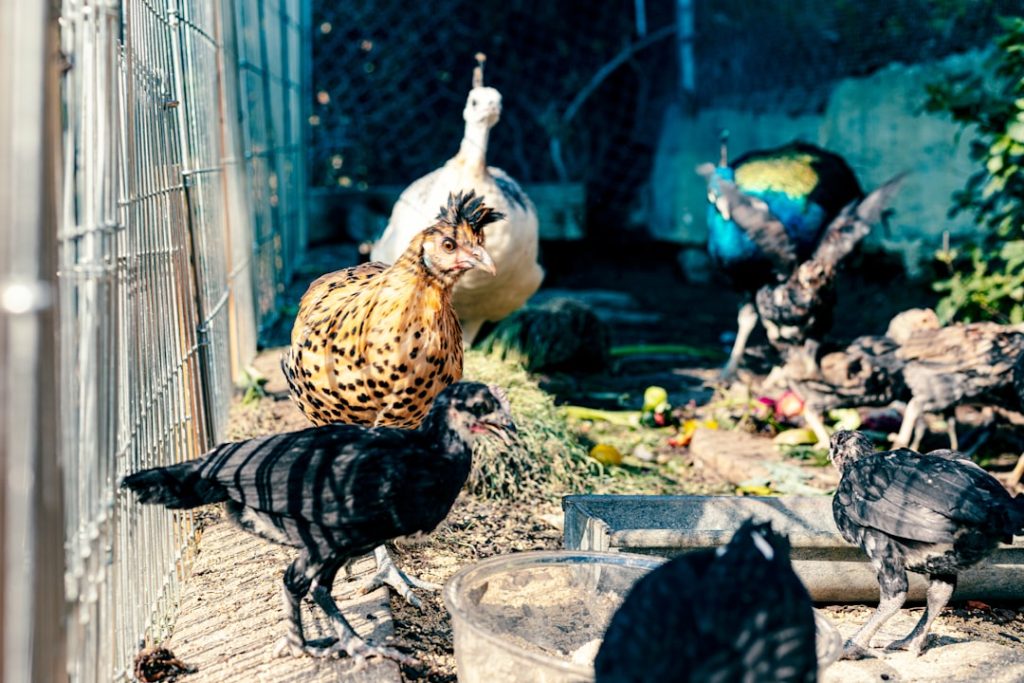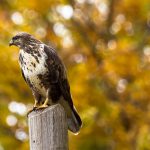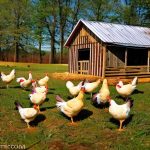Hawks are formidable predators that pose a significant threat to backyard chicken owners. These birds of prey have keen eyesight and powerful talons, making them efficient hunters. They are known for their ability to swoop down on unsuspecting prey with incredible speed and precision.
Hawks primarily target small animals, including chickens, as part of their natural diet. They are particularly attracted to the movement and sounds of chickens, making them vulnerable to hawk attacks. It’s important for chicken owners to understand the behavior and hunting patterns of hawks in order to effectively protect their flock.
Hawks are known for their stealthy hunting techniques, often perching in high vantage points to survey their surroundings before making a swift attack. They are most active during the day, especially in the early morning and late afternoon when chickens are typically out foraging. Chicken owners should be aware of the signs of hawk presence, such as circling in the sky or perching in nearby trees.
Understanding the predatory nature of hawks can help chicken owners take proactive measures to safeguard their flock and minimize the risk of attacks. By being knowledgeable about the behavior and hunting habits of hawks, chicken owners can better protect their chickens from these formidable predators.
Table of Contents
- 1 Protecting your chickens: Tips for securing the coop
- 2 Deterrents and scare tactics: Keeping hawks at bay
- 3 Seeking legal protection: Know your rights as a chicken owner
- 4 Seeking professional help: Working with wildlife experts
- 5 Understanding the emotional toll: Dealing with the loss of your chickens
- 6 Finding community support: Connecting with other chicken owners facing similar challenges
- 7 FAQs
Key Takeaways
- Hawks are natural predators and pose a threat to chickens
- Secure the coop with sturdy fencing and cover to protect chickens from hawk attacks
- Use deterrents like reflective objects and scare tactics to keep hawks away from the coop
- Know your rights as a chicken owner and seek legal protection if necessary
- Seek help from wildlife experts to safely and humanely deal with hawk threats
- Dealing with the loss of chickens to hawk attacks can be emotionally challenging
- Connect with other chicken owners for support and advice in dealing with hawk threats
Protecting your chickens: Tips for securing the coop
Physical Barriers
One effective strategy is to cover the outdoor run with a sturdy wire mesh or netting to create a physical barrier between the chickens and potential hawk threats. This can prevent hawks from swooping down and snatching chickens from the ground.
Overhead Protection
Providing overhead cover such as a solid roof or canopy over the outdoor run can further deter hawks from targeting the chickens.
Predator-Proofing the Coop
Another important aspect of securing the coop is ensuring that it is predator-proof. This includes reinforcing the coop with strong and durable materials, such as heavy-duty wire mesh and locks, to prevent hawks from gaining access to the chickens. It’s also crucial to regularly inspect the coop for any potential entry points or weak spots that hawks could exploit. By taking proactive measures to secure the coop and outdoor run, chicken owners can significantly reduce the risk of hawk attacks and create a safer environment for their flock.
Deterrents and scare tactics: Keeping hawks at bay
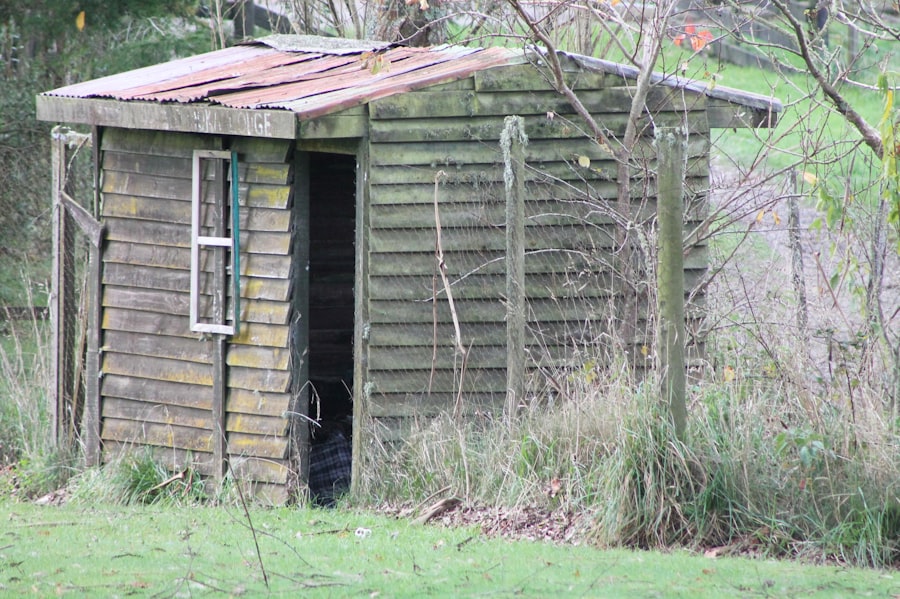
In addition to securing the coop, employing deterrents and scare tactics can help keep hawks at bay and protect chickens from potential attacks. One effective method is to use visual deterrents, such as reflective objects or predator eye balloons, to create a sense of unease for hawks and discourage them from approaching the coop. These visual deterrents can be strategically placed around the coop and outdoor run to disrupt the hawks’ hunting patterns and make them think twice about targeting the chickens.
Another common scare tactic is utilizing sound deterrents, such as motion-activated noise makers or predator calls, to startle hawks and deter them from approaching the coop. The sudden loud noises can disrupt the hawks’ hunting behavior and make them wary of the area, reducing the likelihood of attacks on the chickens. Additionally, employing natural deterrents like roosters or other large birds of prey can help signal potential danger to hawks and discourage them from targeting the flock.
By implementing a combination of visual and sound deterrents, chicken owners can effectively keep hawks at bay and protect their chickens from potential harm.
Seeking legal protection: Know your rights as a chicken owner
As a chicken owner facing the threat of hawk predation, it’s important to be aware of your legal rights and protections under local and state laws. Many areas have regulations in place that allow property owners to take necessary measures to protect their livestock from predatory wildlife, including hawks. It’s crucial to familiarize yourself with these laws and understand what actions you are legally permitted to take in order to safeguard your chickens from hawk attacks.
In some cases, obtaining permits or licenses may be required to implement certain deterrents or control methods for predatory wildlife. It’s important to research and comply with any legal requirements before taking action against hawks in order to avoid potential legal repercussions. Additionally, seeking guidance from local wildlife authorities or legal experts can provide valuable insight into your rights as a chicken owner and help you navigate the legal aspects of protecting your flock from hawk predation.
By understanding and adhering to relevant laws and regulations, chicken owners can ensure that they are taking appropriate measures within the bounds of the law to safeguard their chickens from hawk threats.
Seeking professional help: Working with wildlife experts
When facing persistent hawk predation threats, seeking professional help from wildlife experts can provide valuable support and guidance for chicken owners. Wildlife biologists, conservationists, and animal control professionals have expertise in managing human-wildlife conflicts and can offer insights into effective strategies for deterring hawks and protecting chickens. These professionals can assess the specific situation and provide recommendations tailored to the unique needs of the chicken owner and their flock.
Wildlife experts can also offer assistance in obtaining permits or licenses for implementing deterrents or control methods for predatory wildlife, ensuring that chicken owners are in compliance with legal requirements. Additionally, they can provide education on coexisting with wildlife and offer resources for long-term solutions to mitigate hawk predation risks. By working with wildlife experts, chicken owners can gain access to specialized knowledge and support that can help them effectively address hawk threats and protect their chickens.
Understanding the emotional toll: Dealing with the loss of your chickens
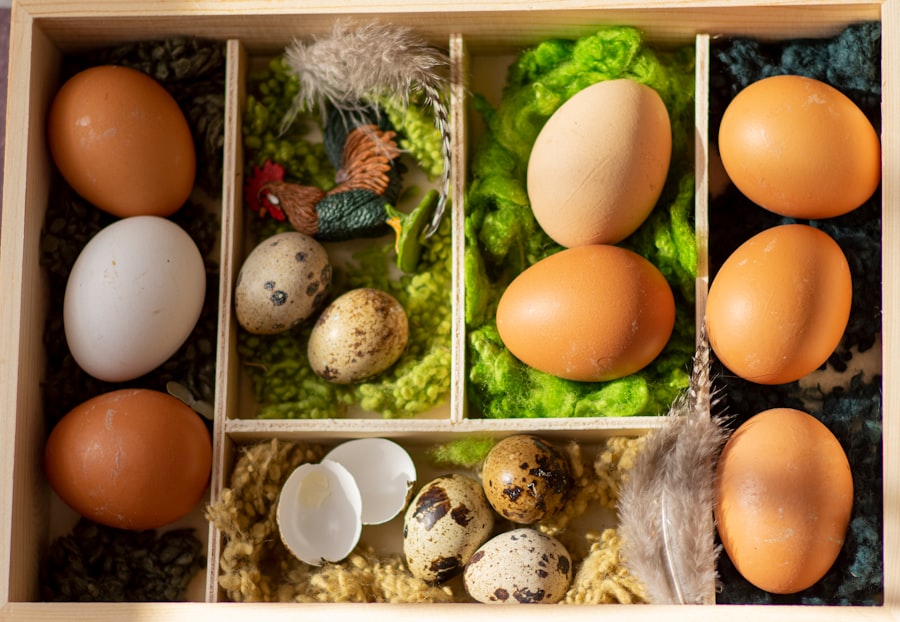
Coping with Loss and Grief
Losing chickens to hawk attacks can be emotionally devastating for chicken owners. The feeling of helplessness and grief that follows can be overwhelming. It’s essential to acknowledge and process these emotions in a healthy way, seeking support from friends, family, or community resources.
Finding Comfort and Solace
Connecting with others who have experienced similar losses can provide a sense of understanding and empathy during this challenging time. In addition to seeking emotional support, finding ways to honor the memory of lost chickens can be a healing process for chicken owners. Creating a memorial or dedicating a special space in the coop or outdoor run can serve as a meaningful tribute to the cherished flock members.
Healing and Moving Forward
Engaging in activities that bring comfort and solace, such as spending time in nature or practicing mindfulness, can also help in coping with the emotional impact of hawk predation. By acknowledging and addressing the emotional toll of losing chickens to hawk attacks, chicken owners can begin to heal and find resilience in moving forward.
Finding community support: Connecting with other chicken owners facing similar challenges
Finding community support is an invaluable resource for chicken owners facing hawk predation challenges. Connecting with other chicken owners who have dealt with or are currently dealing with similar threats can provide a sense of solidarity and shared experiences. Online forums, social media groups, or local poultry associations are great platforms for connecting with fellow chicken owners and exchanging insights, advice, and support related to protecting chickens from hawk attacks.
In addition to virtual communities, seeking out local support networks or groups of chicken owners can offer opportunities for in-person connections and shared learning experiences. Organizing meetups or workshops focused on predator protection strategies can foster a sense of community collaboration and empowerment among chicken owners facing hawk threats. By building connections with other chicken owners, individuals can gain valuable knowledge, resources, and encouragement to effectively safeguard their flocks from hawk predation.
The collective strength and support of a community can be instrumental in navigating the challenges of protecting chickens from predatory wildlife threats.
If you’re struggling with hawks killing your chickens, you may also be interested in learning about duck mating season. Check out this article on when duck mating season is to better understand the behavior of your poultry and how to protect them from predators.
FAQs
What are hawks?
Hawks are birds of prey belonging to the family Accipitridae. They are known for their keen eyesight and sharp talons, which they use to hunt and capture their prey.
Why do hawks kill chickens?
Hawks are opportunistic hunters and will prey on small animals, including chickens, if given the opportunity. Chickens are easy targets for hawks due to their size and relatively slow speed.
How can I protect my chickens from hawks?
There are several measures you can take to protect your chickens from hawks, including using netting or wire mesh to cover the chicken coop, providing overhead cover for the chickens to hide under, and using scare tactics such as noise makers or visual deterrents.
Is it legal to kill hawks to protect my chickens?
In the United States, hawks are protected under the Migratory Bird Treaty Act, which makes it illegal to harm, harass, or kill them without a special permit. It is important to explore non-lethal methods of protecting your chickens from hawks.
What should I do if a hawk continues to kill my chickens?
If you are experiencing persistent issues with hawks killing your chickens, it is recommended to contact local wildlife authorities or bird conservation organizations for assistance. They may be able to provide guidance on how to address the issue in a way that is safe and legal for both the chickens and the hawks.
Meet Walter, the feathered-friend fanatic of Florida! Nestled in the sunshine state, Walter struts through life with his feathered companions, clucking his way to happiness. With a coop that’s fancier than a five-star hotel, he’s the Don Juan of the chicken world. When he’s not teaching his hens to do the cha-cha, you’ll find him in a heated debate with his prized rooster, Sir Clucks-a-Lot. Walter’s poultry passion is no yolk; he’s the sunny-side-up guy you never knew you needed in your flock of friends!

